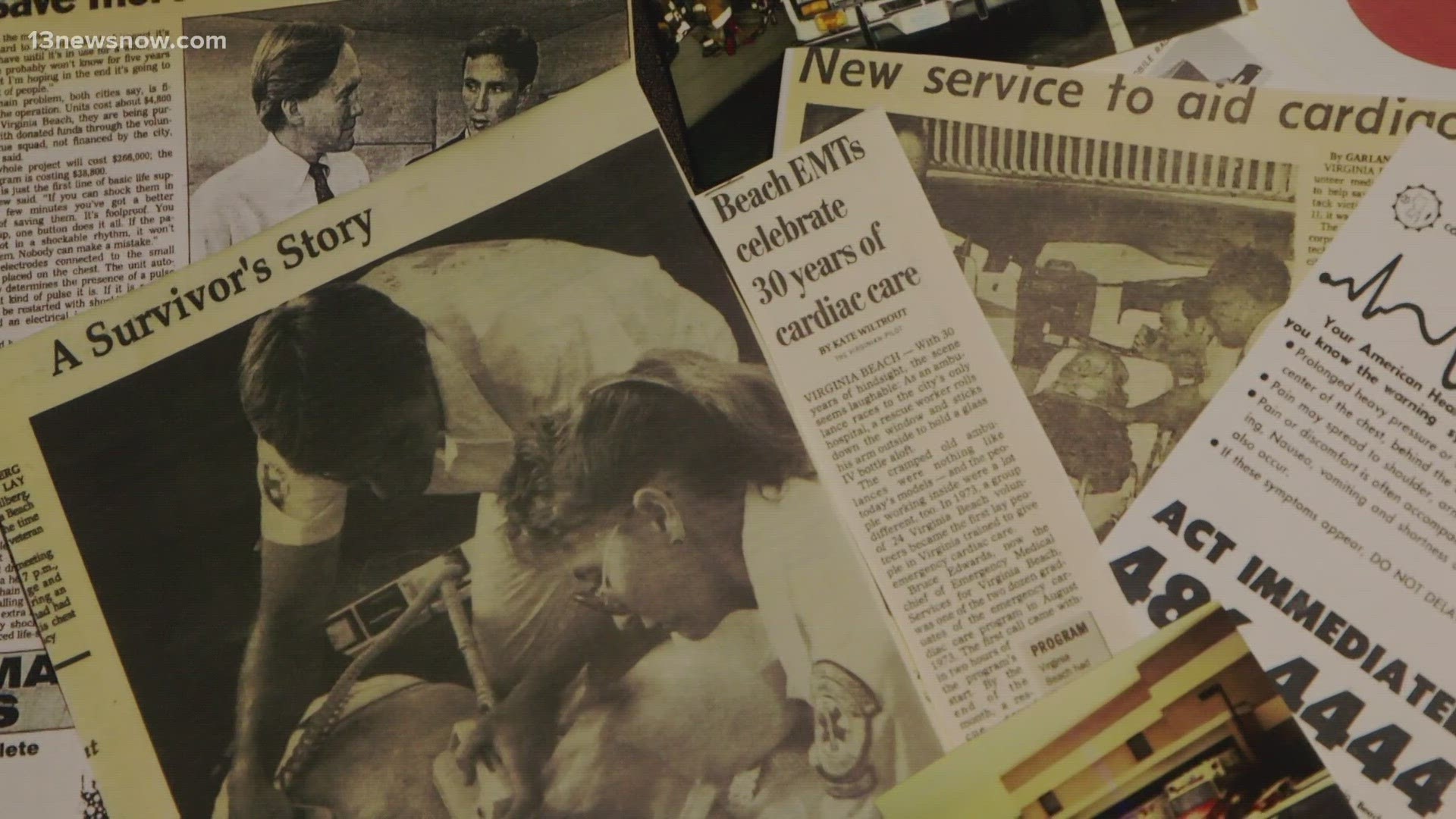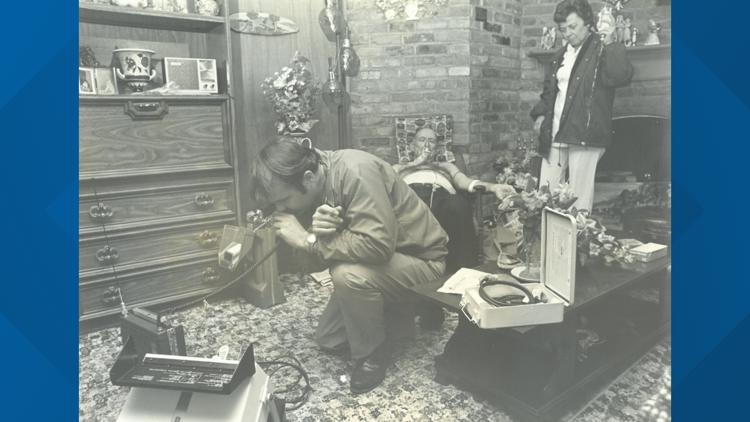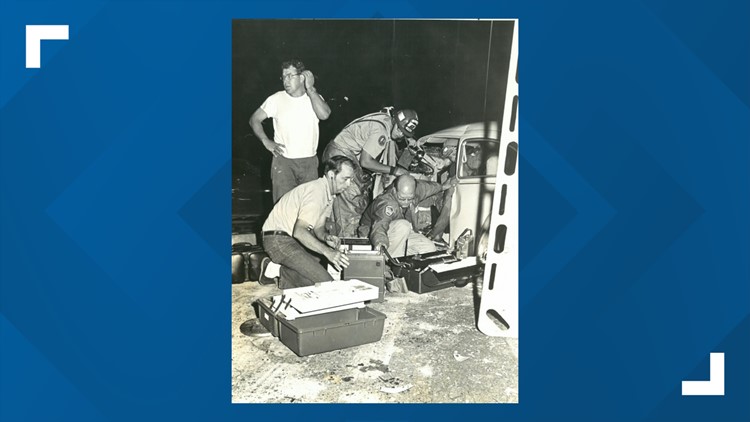VIRGINIA BEACH, Va. — Jane Brumley doesn't shy away from the fact she's a trailblazer.
She's one of the two dozen original members, and the only woman, who graduated in the inaugural class of the Emergency Coronary Care Program (ECCP).
"I pushed to be accepted in that first class, so I feel unique in that way. But otherwise no, I thought I could the same thing any man could do," Brumley said.
The ECCP, first beginning in 1973, was a volunteer-based program that worked in tandem with the Virginia Beach Rescue Squads to provide medical assistance on cardiac-related calls across the city. The technicians were licensed to respond to heart-related calls such as cardiac arrests and more.
Wednesday, the remaining original members were honored for their contributions 50 years ago that are still changing lives today.
There are only a handful of members from the original class still alive:
- Jane Brumley
- John Perry
- John Dickens
- Floyd Mayfield
The program, founded under the guideship of Dr. Andrew Dickinson, is credited with helping establish the current system of Virginia Beach Emergency Medical Services, combining the efforts of both paid and volunteer medical staff.
“What we had to do was get the city council to allow us to begin this program. Then we had to get the state government in Richmond, and get them to pass the 'Good Samaritan' law so volunteers could administer this kind of treatment," Dr. Dickinson told 13News Now.
While other localities across the country were experimenting with administering cardiac related care out in the field, it's the belief among Virginia Beach EMS officials that the ECCP was the first program that allowed this kind of medical care to be administered by entirely volunteer staff.
Care still required medical oversight then, which often meant telecommunicating with trained doctors like Dr. Dickinson while the technicians were out in the field responding to emergency calls.
At a time when medical services were more aligned with medical transportation, the introduction of the ECCP elevated the level of care that could be administered in the city.
“It was very minimal intervention. A splint, a bandage, but that was the extent of what could be done," Dr. Stewart Martin, Medical Director for Virginia Beach EMS, said.
“A number I recall that I think around 150 people back in the 1970’s were dying each year out of our population, having heart attacks. Our feeling was that at least half of those, we could get to the scene and administer care," Dr. Dickinson said.
Emergency response data shows that VB EMS receives roughly 500 calls for service a month related to heart issues, and averages between 30 to 40 cardiac arrest cases a month.











